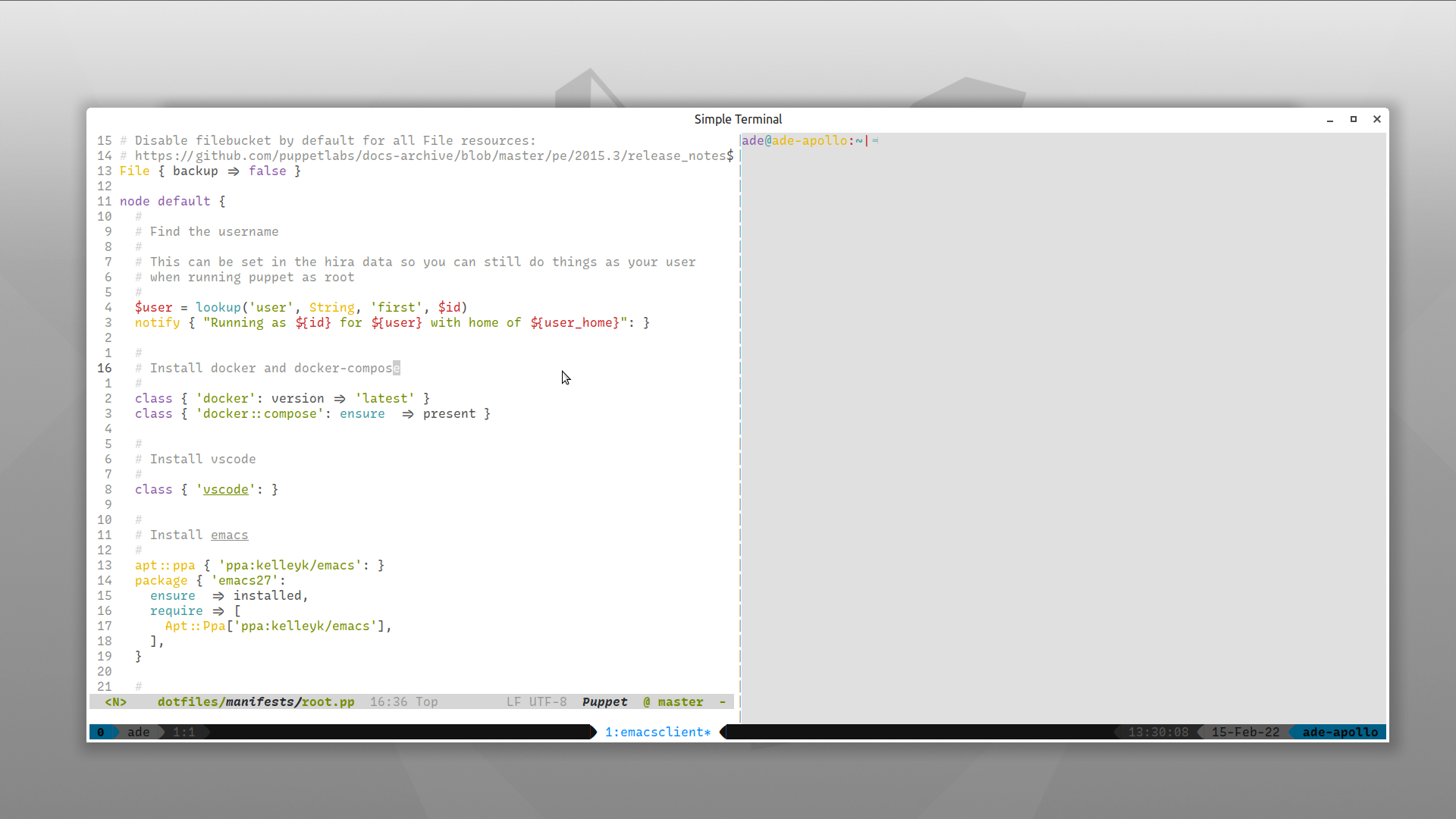Custom plugin to check the .nvmrc file. When entering a directory, it checks to see if you have the desired node version installed for the current project. If it is, it will use it automatically, if not, then it will ask you if you want to install it. After, it will install all the JS developer tools for that version of NodeJS. This is a different implementation than the default oh-my-zsh version. The main difference is that it will not reset the node version when leaving a directory. It will only preform an action if there is a `.nvmrc` file in the current directory. It will not even use the `nvm_find_nvmrc` command because any interaction with nvm make the stranded `cd` command extremely sluggish. |
||
|---|---|---|
| data | ||
| img | ||
| manifests | ||
| scripts | ||
| site-modules/core | ||
| .gitignore | ||
| .luacheckrc | ||
| .stylua.toml | ||
| bolt-project.yaml | ||
| bolt.yaml | ||
| hiera.yaml | ||
| Puppetfile | ||
| README.md | ||
Dotfiles EST 2015
Personal system configuration
This is my over complicated system configuation managed with Puppet, containing all the usual tools you would expect from a terminal development workflow.
Prerequisites
Before you consider using this configuration, it is recommended that you have your own repository and you just take what you need from this repository and adapt it to your needs. If you really want this configuration then it is recommended that you fork, review the code and remove anything you don't need.
To install the configuration Puppet Bolt and Git are required to on the system so you can run the install scripts.
Install
NOTE: Currently the only OS supported is Ubuntu MATE, up until 2020 Ubuntu Desktop was used at work so that should have good support but really any Debian system should be OK.
# Clone the repo
git clone https://gitlab.com/adeattwood/dotfiles.git ~/.dotfiles
# Apply the configuration
site-modules/core/files/bin/dotfiles apply
